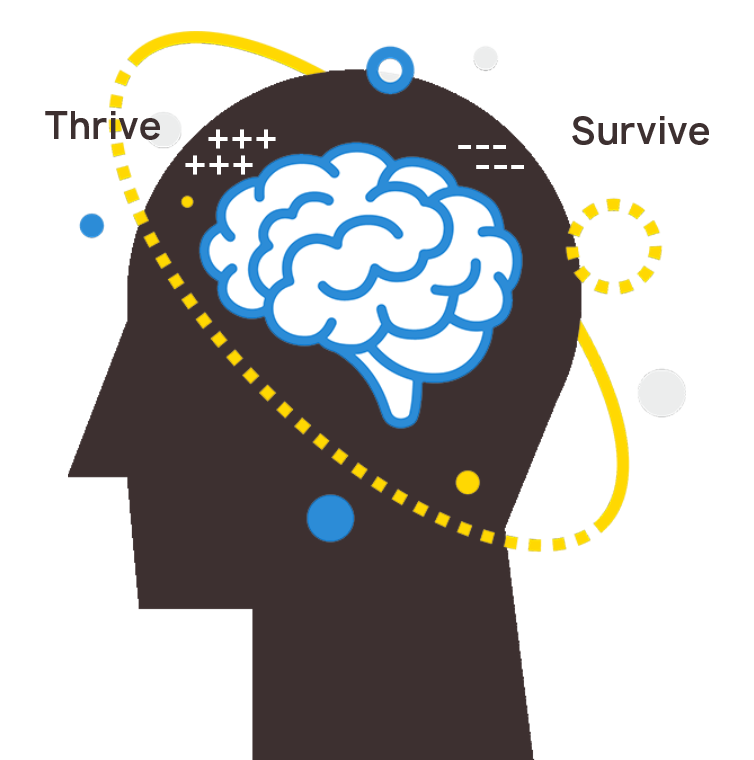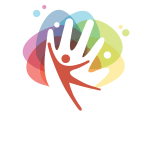Contact Info
#23071, Prestige Shantiniketan, Whitefield, Bangalore-560048


Human brain is wired for stress and negativity bias.
2 different regions in the brain
Survive
Generates all stress & negative emotions
Thrive
Generates positive emotions and highest success
The survival region of our left brain is the automatic brain, which produces all our stress and negative emotions, such as fear, anger, guilt, shame, insecurity, etc. The thrive region of our right brain generates positive emotions, such as curiosity, empathy, creativity, purpose, passion, etc. This is the part of the brain that also generates our highest success. However, very often, the right brain is blocked by the automatic survival brain, which is typically running the show for us.
This anatomy further gets complicated in the adolescent brain – as it is going through a peak “pruning” process. Pruning as the word suggests, involves the brain remodelling itself by strengthening the connections that are used and losing the ones that are not. For example, if your teen is engaged in sports or arts, those are the neural connections that are being strengthened in their brain. Or if they are playing video games and spending countless hours on their devices, those are the brain connections that are being hardwired for them.
Essentially, the teen brain is specializing. So, it is the time for planting the seeds and planting who and how they want to be in the world. Paradoxically, due to the pruning process, which is making them literally lose half their minds, their survival brain is on a high alert. This makes them reactive, impulsive, or aggressive, and often results in what we know as the teen drama.
The good news is that latest neuroscience research has proven that developing mental fitness helps in shifting the balance of power in the brain – from the left, survival brain to the right, thriving brain. It is a skill that develops one’s capacity to respond to life’s challenges with positive, mental muscles rather than negative. The HKT Mental Fitness curriculum develops 11 mental fitness skills, which include stress management, emotional regulation, self-confidence, empathy and interpersonal skills, among other social emotional learning (SEL) and life skills, that equip adolescents to navigate and thrive through their challenges.
Mental Fitness is the missing piece in our children’s development and it is imperative that this skill is integrated in the mainstream school education curriculum.
Research
Mental Health & Well-being of Students – A Survey, 2022
reported anxiety due to studies, exams , results
reported mood swings
reported feeling hopeful in stressful situations
reported lagging behind due to lack of concentration
Source: National Council of Educational Research & Training, 2022, Ministry of Education, Govt of India
Top 3 derailers for Adolescents A Survey, 2025
- Distraction / lack of focus
- Stress and anxiety due to academic/ social/family/ self expectation
- Emotional inadequacy to overcome challenges / disappointments
Source: Helping Kids Thrive Parents Survey
Impact of Mental Fitness
Boost Performance
Use Mental/Emotional Energy More Effectively
Better at Team Work and Collaboration
Improve Wellbeing
Manage Stress Better
Improve Self-Confidence
Strengthen Relationships
Improve Relationships
Improve Empathy
Source: Positive Intelligence




